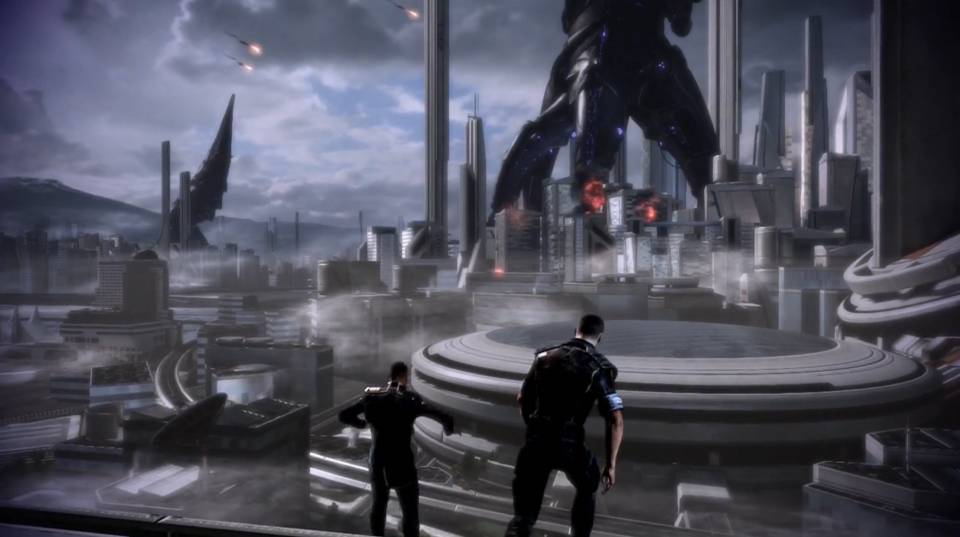
UPDATE: Make sure you read my story from last week, too: "When It's Over, It's Over." I consider this a compliment to that.
--
[Note: This story does contain spoilers about the ending to Mass Effect 3 and TV show The Sopranos.]
The conversation about Mass Effect 3 continues, albeit one that's died down in the past week. That's unsurprising, as players wait to hear about BioWare's next move.
Will the studio change the ending? I'm betting not. Will the studio release downloadable content that provides more context and closure, and will that probably have been the plan all along? I'd say that's likely, but remains unclear.
As part of my story last week about the intense, polarizing, and government-filled reaction to the ending, I spent 30 minutes on the phone with Entertainment Weekly senior writer Jeff Jensen, himself a fellow Mass Effect fan, devotee at the shrine of Lost, and a frequent commentator on pop culture. Much of our conversation did not make it into my piece, but it felt worth sharing, especially the discussions about the concept of fan "entitlement," the precarious nature of endings, and the design struggles of player agency.
Let's contextualize this a bit, too.
This chat happened just as BioWare made its first public statement to fans, and Jensen had not finished the game, though he had read about the endings. As such, we didn't dive much into the narrative misgivings players with the final moments of Mass Effect 3 (which, believe me, I'm with you on), and focuses on the bigger picture.
Hope you enjoy it. It's a bit talky.
-
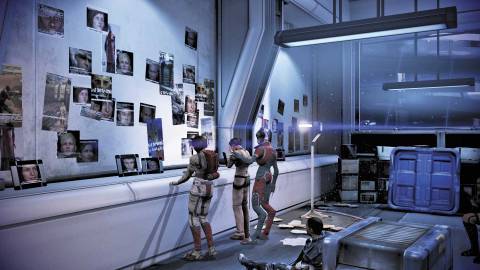
Jeff Jensen: I’ll be honest with you, I only began playing Mass Effect 3 about a week and a half ago. I actually wasn’t really into it in the beginning, and I got distracted by other things, so I have to return to it, but catching up to the controversy is fascinating.
Giant Bomb: It’s interesting because, unlike other mediums, when there’s a television show, when theres’s a finale, or there’s a movie that’s a conclusion to some multi-part series, you can consume that in an hour-and-a-half, two hours. Mass Effect 3 took me 40 hours to finish. It’s not as simple as just booting it up one night so you can catch up, and find out what happened.
Jensen: You felt burned? Were you burned, personally?
GB: Not really. I was disappointed. They were going for something a little more audacious and bittersweet, and I do think a lot of the reaction has stemmed from that. A lot of people play these games to be the good guy that accomplishes everything, and video game endings, as a whole, the trope is that you’re the hero that’s unbeatable and everything turns out alright in the end. They went for something a little more mixed: things are out of your control. Bad things are going to happen no matter what you do, what choice you make. People have some real trouble processing that. Some wanted this “you saved the princess” ending that games have always have. Personally, as a player, it’s really important that they’re having this reaction. You don’t see that very often with a video game.
Jensen: A couple things about that. To prepare for this interview and other things that I’m working on, I actually went and read some sites and actually spoiled everything.
What I find interesting about what you're saying is that...it’s an interesting nuance that you’re talking about. It sounds like whatever scenario you choose, Earth blows up, right?
GB: Earth doesn’t necessarily get destroyed, but the mass relays do get destroyed. The thing that has allowed the universe to be unified, that goes away. In some sense, it’s the universe starting over. Some of them, Shepard dies, some of them, Shepard lives, but as far as I can tell, none of the endings I saw, and none of the endings I’ve read about, involve you saving the day in every capacity. There is no way, no matter what you do, that everything’s going to be alright for everybody. Bad shit happens at the end of Mass Effect 3, and there are consequences for that. I do think that’s part of the reaction--it’s an interesting reaction for BioWare to purposely provoke, but I think it’s an important one. In some way, it’s a commentary on the fact that these games are largely about player choice, and at the end, there’s a subversion of that. Part of this is out of your hands. Maybe that’s looking into it too much, but I do get a sense that there’s a purposeful subversion of the player to reflect that no matter what you do, bad things are going to happen.
Jensen: I really like what you’re saying. It sounds like what BioWare really wanted exactly the kind of dialogue that we are having here, which is, I think, they hoped we could get to the end and everyone that plays this game...it’s having exactly the kind of emotional experience that you’re having but also the kind of reflective experience that you’re having, which seems really worthwhile, and pretty quality. But instead, it gets unfortunately minimized into just the simple issue of satisfaction and catharsis and all that.
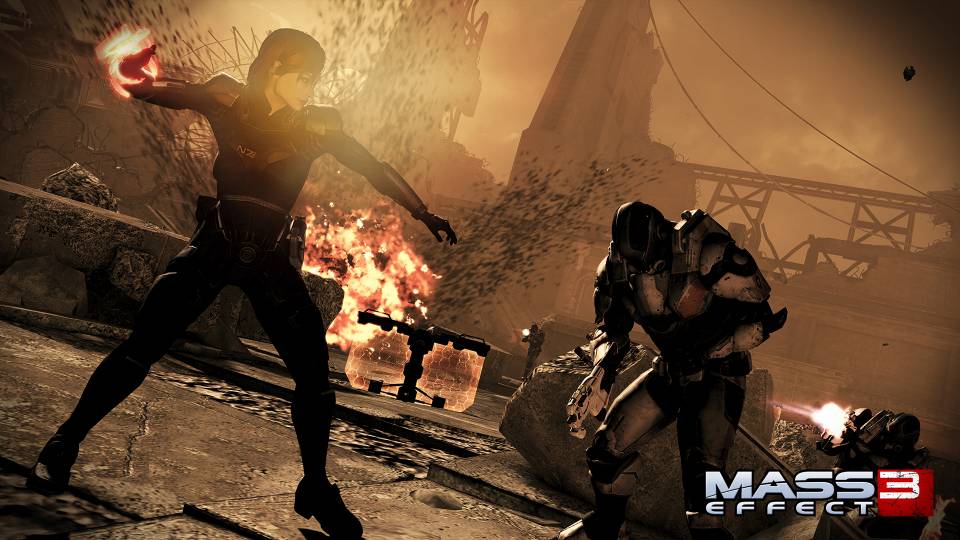
GB: Specifically, Lost was the first analogy that came to mind. I’m sure, as someone that writes a lot about TV and movies, you witness fan entitlement, or the sense of entitlement that fans feel when they’re on this long journey. Whether it’s a series of movies over several years or a TV show over several years, fans come to expect certain things. I’m curious what you’ve perceived over the years, whether from Lost or other shows and movies, how creators in those mediums deal with that sense of entitlement from fans, given the creators themselves have a vision in mind for how they want things to play out.
Jensen: What I would say that the controversies around the finales of Lost and Mass Effect and other examples, too, that we see in pop culture, like for example last year with the television show The Killing, which also kind of flummoxed a lot of people with how they ended the first season. What we are reminded of is that in entertainment, and especially in the mediums of television and video games, they are ultimately service industries. Which is to say the customer is always right, and that’s going to be frustrating for storytellers to hear because ultimately you exist, your product exists, at the whims and desire of your consumer base. If they’re happy, if they’re unhappy, they’re right. Even if they’re wrong, they’re right. You have to deal with it, right? You have to deal with it.
You look at BioWare’s response to this, the Facebook post last [week], and they are basically out there saying “We hear you, we understand your complaints, we’re looking at some possibilities about what to do, but we want you to know that we hear you.” This just goes to show that even if, behind the scenes, the creators at BioWare are like “Damnit, they didn’t get our story! To address the complaints represent a compromise of our artistic vision.” That sucks, but they’re right. You just have to deal with it.
The similarities between Lost and Mass Effect--there’s another similarity, too. Over the past decade in television, we’ve seen a creative medium come into its own and take some bold leaps forward, but there’s still some room to grow. I think after The Sopranos--or, more specifically, after Twin Peaks--I think a lot of TV storytellers became enamored with this notion that TV writing can be an art and I can be an artist, and I can have my own show and tell my own story and it’s my story, my world, my rules, and I’m going to tell you a story and you’re going to listen to it, and you’re going to follow it, and if I bring you to a certain end that is maybe not necessarily a happy ending or the ending that you want, it’s still my story. It has to be my story if it has any artistic integrity.
The audience push back is “no.” As much as the viewer benefits in this era of artist auteur television, in which the most interesting television is being made by singular creators with singular visions that are just telling their own story, viewers who become fans and who immerse themselves and give themselves over to it and devote so much time to thinking about it and talking about it and dreaming into it, they get a sense of ownership. Their agenda becomes projected onto your agenda. If you’re a writer, if you’re a television network, you benefit from that and you can’t run away from that because they’re keeping you in business. When you get to the end, sometimes what you have is this effect, this clash between shows that the artist, the writer, was creating and the show that the viewer, the fan, thought they were watching. When there’s no sync-up, there’s profound dissatisfaction. For the creators of Lost or the creator of The Sopranos, David Chase, that kind of sticks. At the very least, what you hope for is “Well, okay, you didn’t like my ending, but can you appreciate it? Or can we talk about it?” But, instead, that hopeful conversation gets swallowed up by the vitriol that comes with a more consumer orientation that’s more “I expected one thing and instead you gave me a lemon,” if that makes sense.
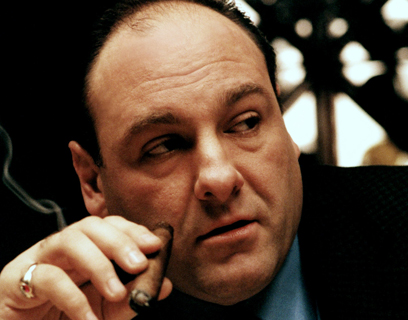
With video games, it’s interesting because I think video games are on a similar creative trajectory. Video games, the art of video games, has grown by leaps and bounds, I mean, ever since its introduction. The entire history of this medium is defined by radical innovation every other year, it seems. The exhilarating part of watching this industry is watching a medium of entertainment grow and blossom before its eyes, and there’s another aspect to it, too, which is very different from watching any other entertainment medium blossom over the past, you know, 100 years of pop culture, which is...I don’t know if people who were fans of movies or fans of rock music during the golden age of those periods said things like “it’s really cool now, but just wait 10 years from now, because we can all be where it’s going.” Video games are different. The best video games not only are really, really good, but as of right now, they capture your imagination for what they could be 10 to 15 years from now. We have this weird dilemma where we’re exulting what the medium can do, even as we’re bucking up against its limitations here and now. And that brings me to Mass Effect.
The interesting thing about Mass Effect is that it’s on the cutting edge of this whole idea of player choice. There’s a sort of choose your own adventure kind of thing. My dilemma playing Mass Effect is usually, as much as I really appreciate the idea and I understand what they go for and I understand how it affects the story, at the same time, I’m always keenly aware that it never really does what I really want it to do. There’s some kind of creative, artificial intelligence within the game that is constantly changing the game in robust, profound ways in response to your choices, instead of just shunting you to one, two or three other options that don’t feel dramatically different from each other. They’re not choose your own adventure games, it’s choose your own nuance games. It seems like Mass Effect 3 butts up against that, especially with its ending, and also butts up against something else, too, which is...hearing about the controversy about Mass Effect 3, it makes me wonder if the artist creators of the game over at BioWare, how much control over their storytelling do these artists really want to seed to the player?
At the end of the day, one of the exciting storylines that is emerging out of the past 10 years of video games are these creators who see video games as a means of artistic expression, a way of telling a story that expresses ideas that they want to challenge people with, that they want to get people talking to. And the most impactful way to do that is to limit potential interpretations and choices in a story, instead of opening it up open source like and making it everything you want it to be.
It seems to me that these possible endings that Mass Effect 3 gives us at the end of the game are like “Yeah, your choices throughout the game have affected your fate in terms of whether you live or die, they affect, to some degree, your character, but we still want a certain [set] of pre-determined endings that are designed to facilitate the certain point that we have about the world, certain ideas that we want you consider, certain conventions that we want to debunk, and pursuing an artistic agenda like that is tricky when you also want to create a game in which the player, in some ways, is being lead to believe they are the defining artistic decision maker in the game, if that makes sense.
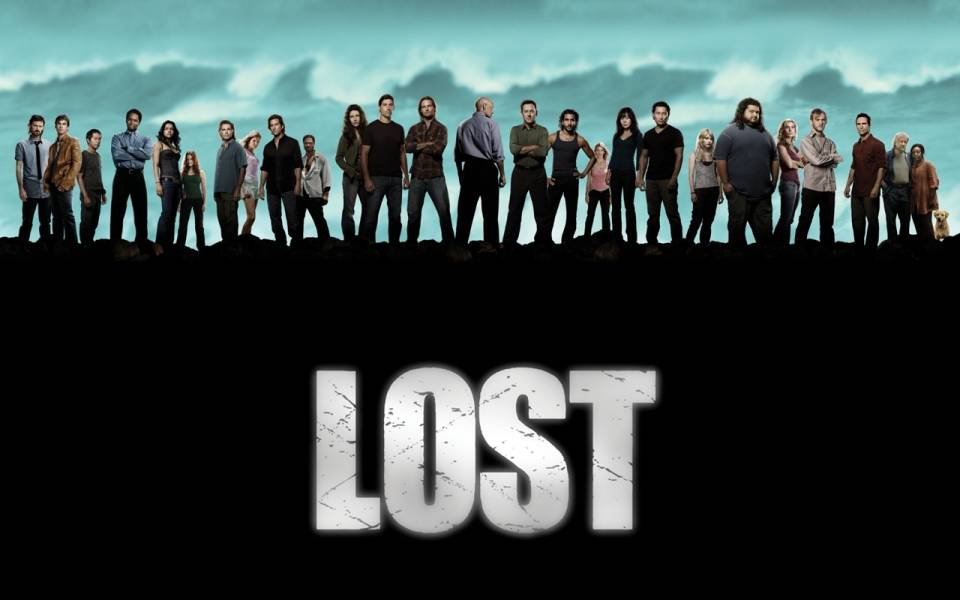
GB: There’s definitely that rub between the player and the creator. An unintended consequence of BioWare’s player choice model was an end where players felt like they were gonna have more agency over that conclusion. And maybe it's not so much that they had written their own ending in their mind, but they’d made all these decisions along the way. Knowing game development, a lot of this is largely just a function of they have 18 months to produce a thing, so there’s only so many outcomes they can produce in X amount of time, but my large takeaway from all of this is that it’s a positive thing, showing how much players can care about a story.
But you’re right, once you’ve handed over the keys of the kingdom to the player, they also expect certain things. You can fall back to the passive entertainment experience excuse with TV and movies because the interactive part happens on the periphery and the creators can always retreat back to saying “at the end of the day, what matters is what’s canonical in the television series--that’s a passive experience that we’re writing and presenting.” But games aren’t that way. Mass Effect is definitely totally separate from that--it’s not just you shooting from the beginning of the level to the end of the level. You’re choosing which characters live and die, which races live and die, which planets survive and don’t. Once you’ve given people that power, you’ve opened the box, the genie is out of the bottle. Players feel like they should have this unique impact on this world and how it plays out, and it’s what makes the world "entitlement" feel...it doesn’t seem to work as well for the reaction. Entitlement’s a really easy word to apply to it, but in some sense, players should feel entitled when they’ve been told they’re the ones who are entitled to make these decisions.
When they get to an end that isn’t satisfying, an end where BioWare says they want to make a statement, that goes directly contrary to the player and the agency they had during that experience. I imagine, as a developer, that’s really tough, especially as games try to embrace this whole cinematic appeal and trying to take what lessons they can from other mediums. Games are inherently interactive, and when you start to take steps further to involving player in the story, you’re going to have consequences for the player’s emotional reaction when you take that away from them.
Jensen: There’s something that you’re also touching on here that I really like, which is a really good point. Regardless of your story, whatever medium you’re experiencing a story, what do we want from endings is a really big picture topic here. Some of the themes that you talked about at the beginning of our conversation here come into play, things like the video game experience offers you the chance to be a hero, and hero stories are all about taking their fate into their own hands and are able to impose their will on a world. They may succeed, they may fail, a lot of that depends on skill, but they get to impose their will on the world for better or worse. You go into a very long journey in which you are executing this kind of heroic function--you expect the opportunity to save the day. You think that should be an option that’s available to you, and, in this case, that’s not. In that way, a traditional ending, or what we want from an ending to that kind of story, is subverted. In other ways, just in general, what we want from endings is catharsis, especially a series finale.
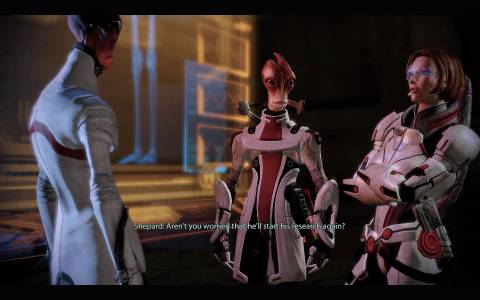
Even though my guess is we may not see the Mass Effect the franchise, it seems to me what was being presented to us was that this is the end, this is the last game at least with this character, in a really involving, immersive, creative endeavor. Here, we really do see analogs to things like Lost or The Sopranos, where a fan base that’s large and rabid and loyal and passionate and really, really invested--they’re not only getting what the final game or final episode, the end of a story, they’re getting the door slammed on a huge part of their lives, a significant thing in their lives. To that end, an ending, then, must give you something more. There’s an expectation of something more. There’s something like a massive emotional catharsis. The ending of Lost really tried to go for that, they tried to win on emotion. “This is the end for all of us, my friends, and we’re all going away, in more ways than one. It’s been a long journey--bittersweet, sad, wonderful, joyous.” And they send us out with tears and a surge fo emotion. Lost completely triumphed int hat regard, but in other areas that people were expecting, the more intellectual areas, payoffs of certain storylines that people were invested in and mysteries that they were really invested in, the storytellers never said “We’re not necessarily as interested in that.” For a lot of people, that was a huge part of that entertainment experience, and they didn’t get it. The catharsis was incomplete.
There seems to be a similarity here with Mass Effect 3, with a fan base that has gone through these games and come to the end, and they want the full meal catharsis--they want everything. They want a heroic end, or the possibility of a heroic end. They want an emotional send-off, they want resolution of certain mysteries, and they all want it to be coherent and skillfully done, and all that. It sounds like Mass Effect just didn’t nail that landing.
GB: When I watched the end of Lost, the emotional arc worked perfectly fine. Yes, I was there for the mysteries and that was the fun of the week-to-week nature of that show, but at the end, I got the emotional closure with each of the characters. It’s different from player to player, just as with each viewer of Lost or any other television show. But with Mass Effect, what they brought to the end was, yes, the mysteries were important, and, yes, the resolution of the conflict with the Reapers was important, but it was the player’s agency. People talk about it in terms of the ending, but it was really just about these very binary choices presented in front of you that didn’t seem to reflect the agency that players had brought in throughout this entire adventure. As a result, they didn’t get get closure through their own agency, which was the motivational factor for these three games, which is why they brought their saved games from one game to the next. It’s interesting to see BioWare run into that as they start to contemplate how they address the reaction.
Jensen: I’m reminded of that whole idea of the observer effect, as well as schrodinger's cat. There’s a world of possibilities inside that box, until you get to the end and you get to the action of opening that box, and looking at it, and in that moment, then, all possibilities collapse and one remains, and only that option remains. Ultimately, then, this experience that was defined by the romance of mystery and possibility suddenly now becomes only defined by this one concrete resolution.
I’m reminded that with Lost--this is a show, week after week, captured your imagination and allowed you to dream into it an infinite number of possibilities and they were really good and clever about it. “What is going on? What is going on?” The interesting thing that happened about the end of Lost is that I honestly think the ending of Lost was an attempt by the show runners to actually communicate a specific point that they had, but while retaining, for the viewer, the quality that they identified as the defining characteristic of Lost, which was mystery, which was should the legacy of this show be one in which we’re still debating and still wondering and theorizing and still speculating years afterwards. I think they thought that by not being clear and concrete and definitive on many of the mysteries that people wanted resolved, they felt they were remaining thematically and artistically true to their creative enterprise and the entertainment experience that we had, which was the conversation about it, the debating about it, the comparison of theories about it, the arguing over it. They tried to thread that needle right at the end with an ending about, “how can we give closure and how can we end the story on our terms that is also satisfying to the audience but is true to the greater whole of this show?” Tricky, tricky. Because it makes you aware that you fundamentally usually watch something and endings usually come to us.
When we get an ending to a story or a final chapter of a story or a final shot, you realize that they’re fundamnetally different animals than the entertainment experience that preceeded it as a whole. The entertainment experience that preceeds an ending is all about sustained tension and sustained mystery, and that final thing is just resolution.
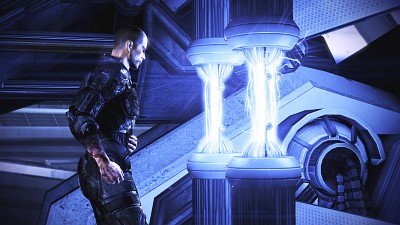
Endings often just can’t win. Most screenwriters will tell you the hardest part of any movie, any story to tell, is just the end. It’s the thing that changes the most, it’s the endings that are the most fought over among collaborators, they’re the things that are just the hardest to land. Some people get it really, really right, some people get it really, really wrong, and some people land anywhere in-between and our attitudes about them can change. The thing about controversial endings, though, is this: five years from now, my friend, we will all say that the ending of Mass Effect 3 was genius! We’ll catch up to it.
I’m not going to say that people feel that way about Lost, but I would say that people feel that way about The Sopranos. Many, many years after the ending of The Sopranos, The Sopranos just ignited a storm of “oh, that was genius! Genius!” “Genius? Are you kidding me? They wimped out! They didn’t have the guts to tell us what they wanted!” Which is the final fate of Tony Soprano. Defenders of that finale said “Yes, they did. Don’t you get it?” and the people who hate it go “Wait, you’re saying that I’m stupid?” And you go into that downward spiral. Years later, the truth of the matter is, the people who hated it then are probably no greater fans of it now, but in the cooling of it all, the cooling of the vitriol, there is some appreciation. There is grudging appreciation in that camp of “I get what he was saying. I get what he was going for.” And, ultimately, what you remember is that “I defined my enjoyment of that series not by that final moment, but by seven, eight seasons of the greatest television show even written.” That’s how we remember The Sopranos. I think that’s how that’s the fans of Lost are going to remember that show. I think that, for better or worse, the final season of that show will be remembered as something of a cautionary tale. I happen to love it. Do I love it as much as the five seasons before? No, but I really respect and like and was moved by what they did. I think, the further we get away from Lost, it will get more defined by the things that it did right and revolutionary versus the issue of audience satisfaction.
I think Mass Effect as a franchise, these three games taken together, I just can’t see how it’s not regarded as anything less than a landmark. There’s so many things to enjoy about these games and this world and the creative accomplishment of this series than just those final moments. When I played those first two games, the narrative arc of it is maybe one of the things I like the least. I love the way it looks, I love the character design, I love these worlds--there’s so much to really enjoy and love about it. Given some time, people will remember all of what they loved about this thing and now the resolution of it all.
567 Comments